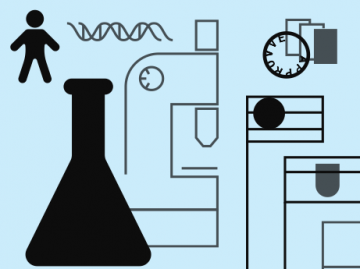This section analyses stakeholders’ expectations about the intended goal of the SATORI project: an European framework for ethics assessment (EA) of research and innovation (R&I). This analysis is based on 153 interviews with different kinds of stakeholders, both ethics assessors and non-assessors, who were asked to share their opinions on the desirability and possibility of such a framework1. The interviews were conducted during the previous, fact-finding stage of the project, before the framework was developed 2.
At the first level of analysis, the positions of the stakeholders on the prospect of a common approach to EA in R&I was identified. 51.6% of interview respondents thought it would be desirable to have a shared European framework. An additional 30% of respondents were conditionally positive on the desirability of the framework. These stakeholders would welcome the framework if it would be designed or implemented in a specific way. 9.2% of responses were negative, while another 9.2% were inconclusive.
The second level looked deeper into the interviews, identifying recurrent themes and major points provided by respondents, concerning the benefits and potential negatives of a common framework, the obstacles to its development and implementation, as well as advice on the framework’s design.
Among the benefits of the common framework, respondents cited unification, harmonisation and convergence of EA principles and procedures.

Many stakeholders also thought that the framework could be beneficial as a platform for discussion of ethical issues and exchange of best practices of assessment among a variety of stakeholders. A framework should preferably include wide stakeholder participation and dialogue, and be based on an inclusive decision-making process, rather than one that is top-down. Stakeholders would also welcome the use of the framework in international projects.
According to the majority of respondents, the biggest obstacle for creating the common framework is the differences between countries, cultures, ethical values and philosophies as well as between scientific fields. The awareness of the differences often led to the conclusion that the framework should be general and function at an aspirational level. At the same time, the stakeholders were acutely aware that a framework that does not strive to provide concrete answers could become useless or at least impractical. A possible solution is that countries and scientific fields should have the option to accommodate the general rules with some room to manoeuvre due to differences, similar to the “margin of appreciation” doctrine in the field of human rights. Some respondents warned that it would be hard to achieve buy-in or enforce the framework. Others feared the framework would increase bureaucracy or that it would be reduced to another check box formality.
There are therefore three major challenges for the development of a common framework. The first challenge is to achieve harmonisation of ethical principles and procedures, while at the same time allowing for differences between countries and scientific fields. The second challenge is for the framework to function on a general, aspirational level, while at the same time providing useful tools for solving concrete ethical dilemmas. The third challenge is to achieve a wide acceptance for the framework.
- Philip Jansen, Wessel Reijers, David Douglas, Agata Gurzawska, Alexandra Kapeller, Philip Brey, Rok Benčin, Zuzanna Warso, SATORI Deliverable D4.1 A Reasoned Proposal for Shared Approaches for Ethics Assessment in the European Context, December 2016. Link to PDF
- Shelley-Egan, Clare, Philip Brey, Rowena Rodrigues, David Douglas, Agata Gurzawska, Lise Bitsch, David Wright & Kush Wadhwa, SATORI Deliverable D1.1 Ethical Assessment of Research and Innovation: A Comparative Analysis of Practices and Institutions in the EU and selected other countries, June 2015. Link to PDF
